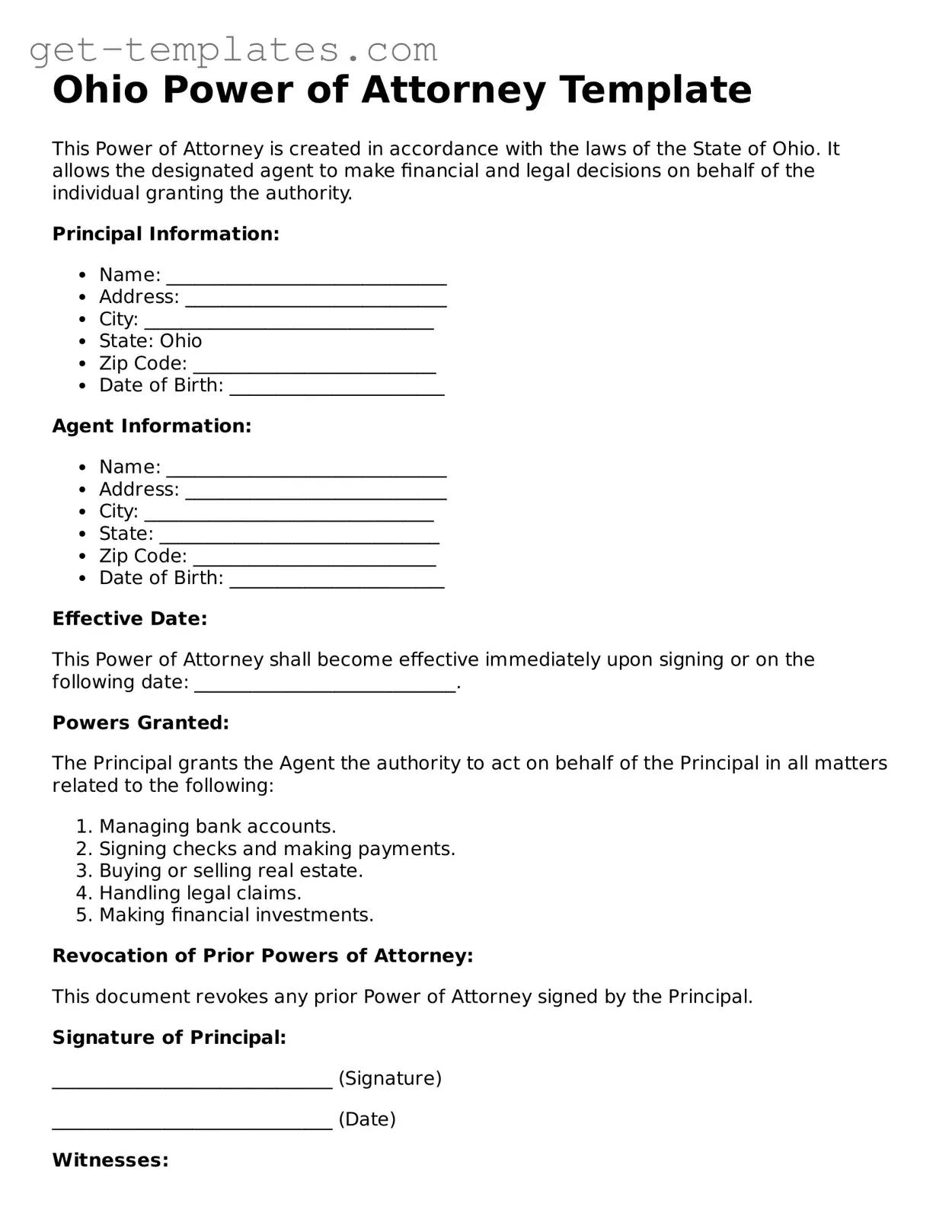Attorney-Approved Power of Attorney Document for Ohio
The Ohio Power of Attorney form is a legal document that allows an individual, known as the principal, to designate another person, called the agent, to make decisions on their behalf. This form can cover a range of financial and legal matters, ensuring that the principal's interests are represented even when they are unable to act for themselves. Understanding the nuances of this document is essential for anyone considering appointing an agent in Ohio.
Get Document Online

Attorney-Approved Power of Attorney Document for Ohio
Get Document Online
You’re halfway through — finish the form
Finish Power of Attorney online — edit, save, download made easy.
Get Document Online
or
⇓ PDF Form
